Welcome to the world of cannabis! At Reverie 73, we want you to feel educated, confident, authoritative, and dynamic when browsing, purchasing, and trying products. We seek to give you the tools and knowledge you need to be completely comfortable in your selections and experiences involving cannabis. We are here to help you learn and navigate the world of cannabis when it comes to what our products are, how they work, and what benefits you can expect from them. Here you’ll find our cannabis 101 guide for your own independent learning, but we also welcome you to chat with any of our Reverie 73 muses for advice or explanations. We are here to help!
First thing’s first—what really is cannabis? Also commonly known as hemp, marijuana, or weed, this plant (a species in the Cannabaceae family) contains various chemicals, like delta-9-tetrahydrocannabinol (THC) and cannabidiol (CBD), that can have psychoactive effects when ingested into the human body. For thousands of years, the flower of this plant has been used both medically and recreationally.
Here’s the 411 on the history of cannabis: this fascinating plant was thought to be first grown for grain and fiber in East Asia. It was known to be used for medical, recreational, and ritual purposes, and is now one of the most readily used psychoactive drugs in the world. Though the archaeological evidence of use is limited and controversial, its use is thought to date back to ancient civilizations in countries such as China, India, and what is now Iran.
Within Chinese culture (dating back to perhaps 4000 BCE!), the herb was traditionally used as a medicine. The first Yan Emperor Shen Nung, who was known as the ‘Father of Chinese Medicine’ was said to use the plant for its anti-inflammatory and analgesic qualities, which is what it’s still used for today.
Over time, the rest of the world joined in on the action, and the use of cannabis spread to Europe, Africa, and the Americas. In the 16th century, Spanish colonizers brought it to America and by the 1800s, it was being widely grown and harvested in the United States.
The 20th century brought regulation with the United States initiating a global movement to criminalize the use and sale of cannabis. The US even passed the Marijuana Tax Act making it illegal to use or possess any amount of the drug. For decades much of the world followed suit, though some countries (think the Netherlands) gradually shifted to a more liberal take on the topic.
Most recently, countries and states have decriminalized and even legalized the herb for not only its medical uses but also to be enjoyed recreationally. As of 2023, 22 states have legalized weed for recreational purposes.
When it comes to how cannabis can affect the body, it’s a largely personal experience. It also depends on the method of ingestion, dose, and tolerance. Delta-9-tetrahydrocannabinol (THC) is the primary active ingredient that interacts with the body’s endocannabinoid system. A biological network of receptors and neurotransmitters in the brain, this system is responsible for many physiological processes such as eating, anxiety, learning and memory, reproduction, metabolism, and growth and development.
Cannabis users may experience some, or all of the following:
Tetrahydrocannabinol (a.k.a. THC) acts like the cannabinoid chemicals made naturally by your body. THC stimulates cells in the brain that release dopamine and is responsible for the mind-altering effects that most people associate with cannabis products.
Cannabidiol (a.k.a. CBD) doesn’t get you high, but can help to relieve stress and pain, improve appetite and aid sleep.
In addition to THC and CBD, the trichromes on a cannabis plant also produce terpenes, aromatic oils that contribute to each strain’s color, flavor and scent. While they won’t get you high, some people claim terpenes can be helpful in establishing certain frames of mind like focus or calm.
THC works by interacting with the body’s endocannabinoid system which is a complex network of receptors, enzymes, and endocannabinoids.
This complex network helps to regulate various physiological and cognitive processes including mood, appetite, pain, and memory. Therefore, THC is the reason cannabis users may experience an improvement in mood, absence of pain, increased or decreased appetite, and more.
Dosing guidelines can always be found on our packaging and website. To ensure users have the best experience possible, dosing guidelines should always be followed by those who are less experienced.
CBD works by interacting with the body’s endocannabinoid system, which is responsible for regulating various physiological and cognitive processes. It may be able to enhance function and reduce the activity of the receptors that are responsible for inflammation and pain throughout the body.
CBD impacts the parts of the brain that release serotonin and dopamine. These are responsible for regulating mood, appetite, anxiety, stress, and sleep. In effect, CBD has been known to reduce pain, treat certain types of epilepsy, alleviate disease-related symptoms such as nausea, vomiting, and pain, and reduce inflammation. It is always important to talk to your doctor or a trusted medical professional before self-diagnosing and medicating with CBD.
Dosing guidelines can always be found on our packaging and website. To ensure users have the best experience possible, dosing guidelines should always be followed by those who are less experienced.
In addition to THC and CBD, the trichomes on a cannabis plant also produce terpenes, aromatic oils that contribute to each strain’s color, flavor and scent. While they won’t get you high, terpenes can be helpful in establishing certain frames of mind like focus or calm. Their effects are just like those from aromatherapy.
The combination of terpenes and cannabinoids on each plant interact to create a very niche, specific feeling known as the entourage effect. More and more labs are beginning to label products with their terpenoid profiles so that customers can have a better understanding of their effects. If you’re shopping for a specific experience, try selecting strains based on a combination of their CBD/THC dominance and terpenoid profile for best results.
Terpenes don’t only occur in cannabis plants. They’re present in almost all plants and foods and are responsible for some of what you feel when you eat them. We’re going to highlight some of the most common terpene profiles below, and we’re pretty sure you’ll recognize at least a few of the properties we describe in some foods you eat every day.
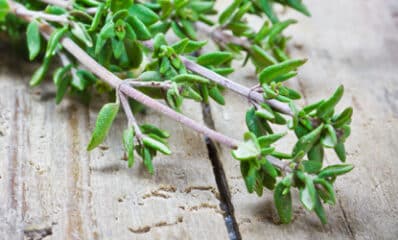
Helps With:
r&r, pain relief
Aroma:
earthy, like cloves
Also Found In:
mangoes, broccoli and thyme
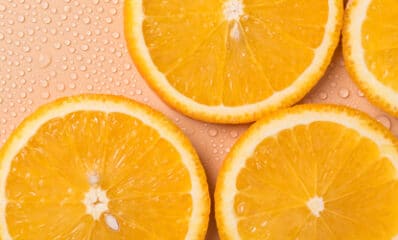
Helps With:
quelling anxiety, improving mood
Aroma:
citrus, specifically oranges
Also Found In:
oranges, grapefruits and spearmint
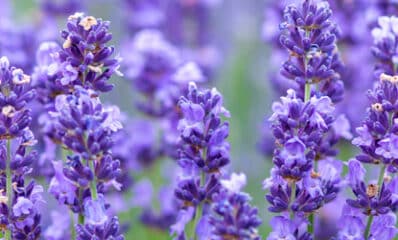
Helps With:
stress relief, sleep, improving mood
Aroma:
floral, spicy
Also Found In:
lavender, coriander and cilantro
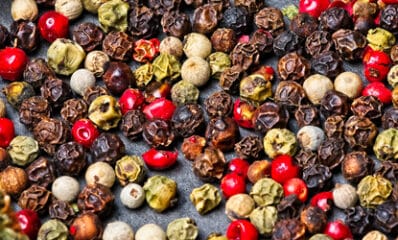
Helps With:
pain, inflammation, anxiety
Aroma:
spicy
Also Found In:
cloves, pepper and hops

Helps With:
inflammation, alertness, reducing anxiety
Aroma:
earthy, like a pine forest
Also Found In:
pine trees, basil and dill
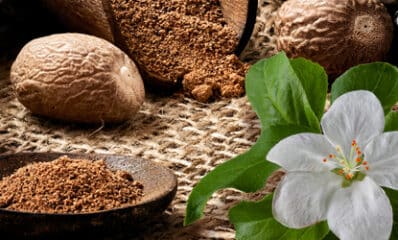
Helps With:
sleep
Aroma:
floral, herbal
Also Found In:
apples, nutmeg and lilacs

Flower refers to the smokable part of the female cannabis plant. It’s covered in collections of trichomes, which give the buds their shiny appearance and sticky texture. You can choose to smoke the dried flower, in pre-rolled joints, or from a pipe or water pipes.

Vape pens are an easy, portable, and efficient alternative to smoking flower. Compact and stylish, these are essentially rechargeable or battery-powered pens that work with pre-filled glass cartridges of concentrate.

Categorized as cannabis-infused foods or drinks, these tasty alternatives to smoking or vaping are available in virtually every type of tasty morsels such as candy, baked goods, ingredients (like butter or oil), and beverages.
Every strain of cannabis is its own variety, each of which has been created through generations of breeding and has unique cannabinoid, terpene, and effect profiles. Most major lineages and varieties have been given a strain name, several of which are recognized worldwide (like OG Kush, Sour Diesel, and Blue Dream). While some of these names imply that the product will produce certain effects, they’re more marketing than anything else and are not always reliable. In many dispensaries and in cannabis culture, you’ll also hear people refer to different strains as being part of one of three species of cannabis: sativa, indica, or a hybrid of both.
Sativa strains are noted to be more energizing and uplifting, perfect for creating art or socializing with friends. Think: stay-on-the-dance-floor. Sativa plants are tall and skinny with thin, pointed leaves.
Indica has been noted as producing strains that provide full-body calming effects that make you want to melt into your couch and relax. To remember this one, think: in-da-couch. Clever, no? Indica plants are usually short and stocky with leaves that are broad and chunky.
Hybrids, as the name suggests, provide some sort of a combination of effects from both sativa and indica strains. Most cannabis today is cultivated as a hybrid strain.
Though the effects of sativa can vary from person to person, many users feel an increased amount of energy, heightened creativity, and enhanced mood after consuming sativa strains as it is known to help reduce symptoms of depression and anxiety. Some also feel more focused and concentrated as they aim to complete tasks. Sativa is also known to reduce pain and inflammation in many users while also decreasing appetite.
As you may have guessed, the effects of indica strains also depend on the person consuming them. However, indica is commonly thought to encourage relaxation, rest, and sleep in both the body and the mind. Many users note that this strain helps reduce pain, inflammation, stress, and anxiety while increasing appetite.
Not only does the effect of hybrid stains depend on the person, but it also depends on the specific strain and the ratio of sativa to indica. Generally, it’s safe to assume that hybrid strains will have a combination of the effects of both pure sativa, and indica which can include mood elevation, pain relief, increased creativity, and enhanced sensory perception. By nature, this strain also tends to produce a more balanced high.
Most people who have learned about cannabis strains in terms of the traditional indica vs. sativa concept infer that sativa strains have higher levels of THC and indica strains, CBD. This is not the case. There are many indica strains with high levels of THC and low levels of CBD, vice versa. Due to cross-breeding for so many generations, it is considered rare to find a strain that is authentically solely sativa or indica today; most strains are actually some sort of hybrid.
Instead of making purchasing decisions based on the label of indica or sativa, check out the THC, CBD and terpenoid profiles of each strain you’re looking at. This will give you a much better understanding of how the strain may affect you, and it can help inform your purchasing decisions later on as you learn what you do and don’t like.
Cannabis is legal for medical and recreational use in the state of Massachusetts, but this doesn’t mean that there are no rules regarding the drug. In regards to possession, Massachusetts law states that you must be 21 or older to possess 1 oz. (or have 10 oz. in your home) and “like alcohol, you cannot have an open container of adult-use marijuana or marijuana products in the passenger area of your car while on the road or at a place where the public has access. Furthermore, an ‘open container’ includes a package with its seal broken or a package from which the contents have been partially removed. The ‘passenger area’ does not include a trunk or a locked glove compartment.”
In regards to home cultivation of cannabis, you must be at least 21 years old and can only grow up to six plants in your home. Among other things, the plants also must be grown in an area that has a lock or security device and they can’t be visible from a public place without the use of binoculars, aircraft, or other optical aids.
While cannabis is still illegal on a federal level, it is legal in many states for medical or recreational use. Recreational use of cannabis is permitted in the state of Massachusetts for adults only (21+). All recreational cannabis clients will be asked to show a government-issued photo ID upon their arrival at Reverie 73.